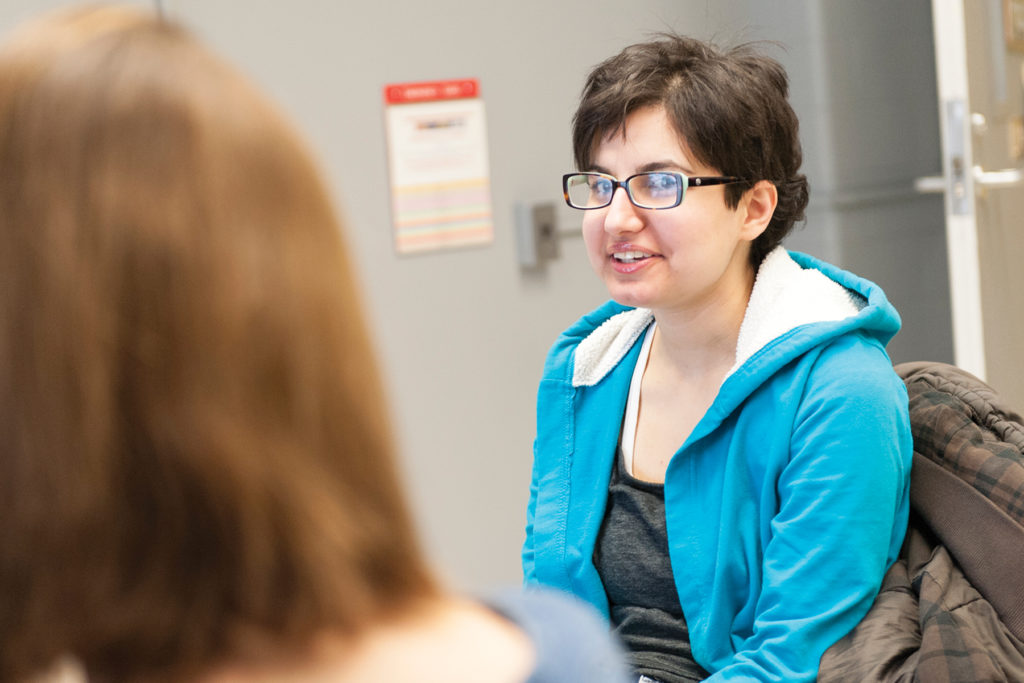Providing support for college students with autism
Tuesday, March 31, 2015

Navigating the college social scene can be challenging. For students like Yasmin Khoshnood, who is on the autism spectrum, it’s even more difficult.
A social support group run by UIC’s Autism Clinic and TAP Training Center helps college students on the autism spectrum strengthen life and social skills.
The Autism Spectrum People in Education group (ASPiE), facilitated by psychologist Jennifer Gorski, meets twice a month on campus. The group is open to any college student in the Chicago area who has autism, a neurodevelopmental disorder characterized by difficulties in social interaction and communication, and rigid or repetitive behaviors and interests.
“It’s a good place to get to know other people — you relate to each other in a way you don’t relate to other people,” said Khoshnood, a sophomore studying Spanish and French.
UIC provides a variety of autism-related services, funded by the state’s The Autism Program of Illinois (TAP). These services — including the ASPiE group — would be affected by proposed state budget cuts that eliminate all funding for TAP, which has 17 centers throughout Illinois. “The elimination of TAP funding will have a negative impact on our clinic’s ability to provide important community support and training,” said Gorski, clinical assistant professor of clinical psychology.
UIC’s Autism Clinic and TAP Training Center — housed in the Developmental Disabilities Family Clinics in the department of disability and human development — serves children, adolescents and adults with autism spectrum disorders. It provides diagnostic evaluations, training and consultation for schools and professionals, social skills groups and community support, such as a summer program for Latino youth and their parents.
“We try to focus on where we can make a difference,” Gorski said.
It’s critical that students on the autism spectrum find support, Khoshnood said. “Students should look for the right resources as soon as possible and be honest and not be afraid to ask for help,” she said.
DePaul University student Marin Wald says the ASPiE group is “an easy place to talk and an easy place to meet people.”
“You learn skills and meet people you can relate to,” said Wald, a senior in accounting. “You learn time management skills and how to be a better friend.”
Gorski started ASPiE in 2011 after she noticed that many students visiting the clinic had similar questions about college. “I began wondering if there was a better way to provide support through a peer-mediated process,” she said. “We talk about common concerns and issues. It’s a chance for them to relax and talk to people who might understand what they’re going through.”